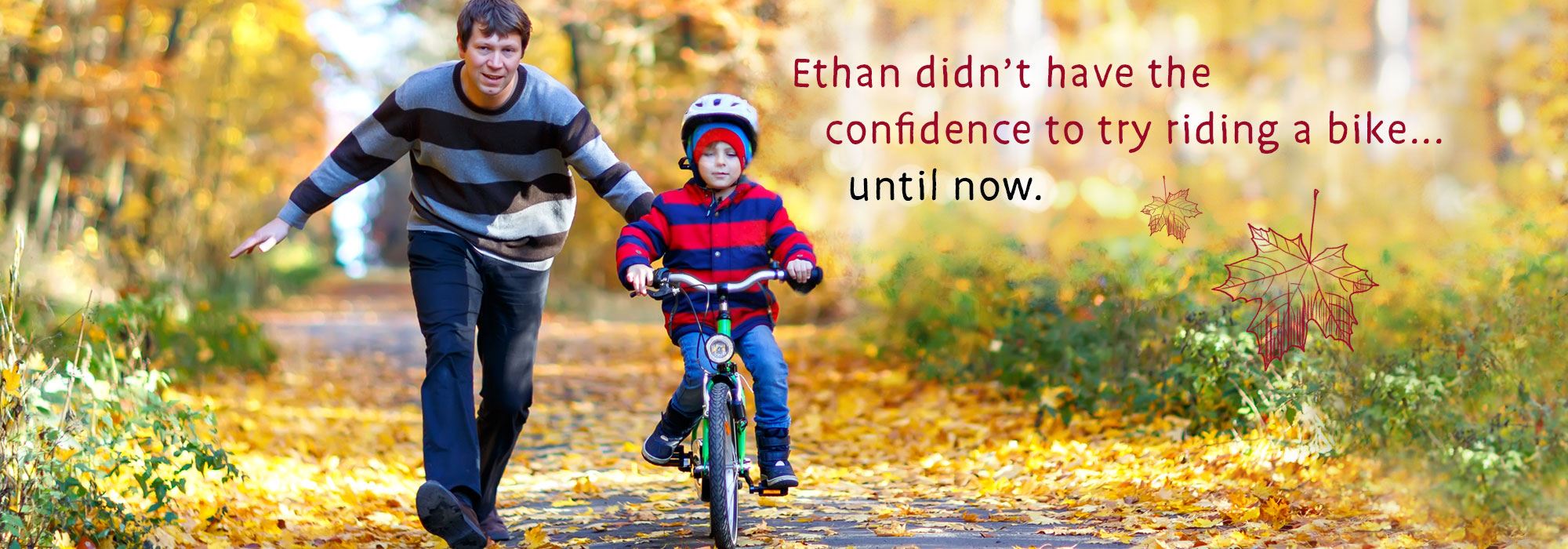Who can foster
Sadly there are lots of common myths and assumptions around who can foster, but the truth is, anyone can be a foster carer provided they:
- are aged 21 or over - but there is no upper age limit
- have a spare room in their home
- have no offences against children
We need foster carers as diverse as the children in our care. Things like who you love and whether you own your own home aren't important - we recognise that what matters most, is that you have the qualities and time to support a vulnerable young person or child.
You CAN foster...
If you're single, married or in a civil partnership
Your relationship status doesn't matter. Families come in many different shapes and sizes, and we assess everyone who applies to foster in the same way. Some children in care may benefit from being placed with a single foster parent, be that a single male or single female. Others may benefit from the balance of a nuclear, two parent household. However, having your own support network is really important, be that in the form of family and friends, or within the fostering community. Fostering is a wonderful thing to do, but the rewards often come with plenty of challenges along the way.
If you're male, female, non-binary, straight, gay, bisexual, transgender....
Who you love and how you identify doesn't impact your ability to provide a stable and loving home for a vulnerable young person, and we actively welcome applications from the LGBTQ+ community. We're looking for foster carers who want to make a difference to a vulnerable young persons life, so if that's you, please get in touch.
If you have a religion, or if you don't have a religion
When matching a child to a foster family, we're looking for the right family based on their ability to meet a child's needs, and sometimes that includes a child's religious needs if they have a faith. That doesn't mean you need to be religious, or practise the same religion as the child and vice versa. We actually have quite a few multi cultural fostering households.
No matter what your ethnicity or cultural background
Unfortunately Somerset is not a hugely diverse county, but we would love to recruit more foster carers from the BAME community to help us build an even stronger, more diverse fostering community.
If you have pets
Lots of our foster carers have pets. From dogs and cats, to donkeys and lizards, pets can sometimes be a comforting friend to a foster child. However, it's important to make sure that any pets living with you in your household can live safely alongside any foster children, so your pets will be assessed as part of the process in areas such as behaviour and temperament. We'll also need to make sure things like ponds do not present a hazard to any children, so for example, ponds need to have a safety cover or be securely fenced off.
If you have children of your own, but also if you don't have children of your own
Many of our foster carers have children of their own (often called 'birth children' within fostering), some living with them now, and others who have grown up and left the nest. Sometimes foster carers have birth children at nursery, primary school or secondary school, and foster children of a similar or very different age to their own children.
We also have foster carers who do not have children of their own. They may have nieces or nephews, maybe they've worked with children but do not have their own children - and that's okay too. What all of these foster carers do have in common, is that they can all provide supportive, stable homes for our Children Looked After.
If you private rent, are living in council or housing association accommodation, or own your own home
You don't need to own your own home to be a foster carer, you just need a home which is suitable for fostering, with a spare room you could offer to a foster child. What you may need if you are renting is permission from your landlord to foster whilst living in the property, which is often not an issue at all.
If you feel you have a difficult past
Maybe you had a difficult childhood, or found yourself walking a different path in previous years?
Do you have some minor offences in your past that you're worried might stop you fostering?
Sometimes the challenges a person has faced, or the life experiences they have, are exactly the reason they would make a fantastic foster carer. Often the children in our care have come from difficult backgrounds or experienced trauma, so your own experiences may help you to connect with that child and relate to what they're feeling. However, it is really important that we provide safe, stable environments for the children in our care, which is why the assessment process can be extremely invasive. We will need to talk to you about your past, your childhood and significant ex partners for example - but we all face our own challenges in life, and as humans, sometimes we make mistakes. What matters most is where you are now, and what you can offer a child in need. Your experiences, bad or good, could actually make you the perfect match for a young person experiencing tough times of their own.






